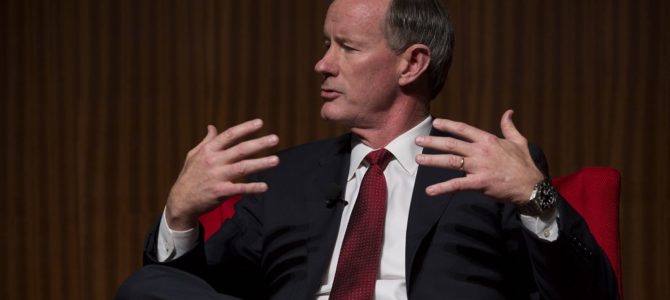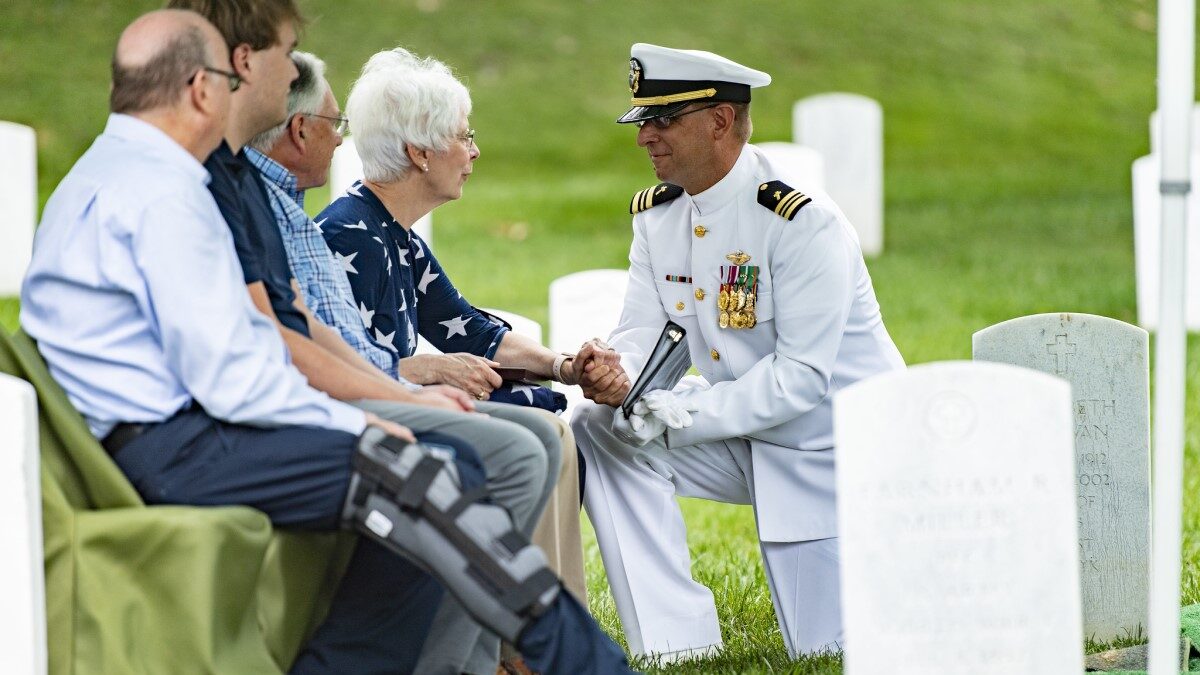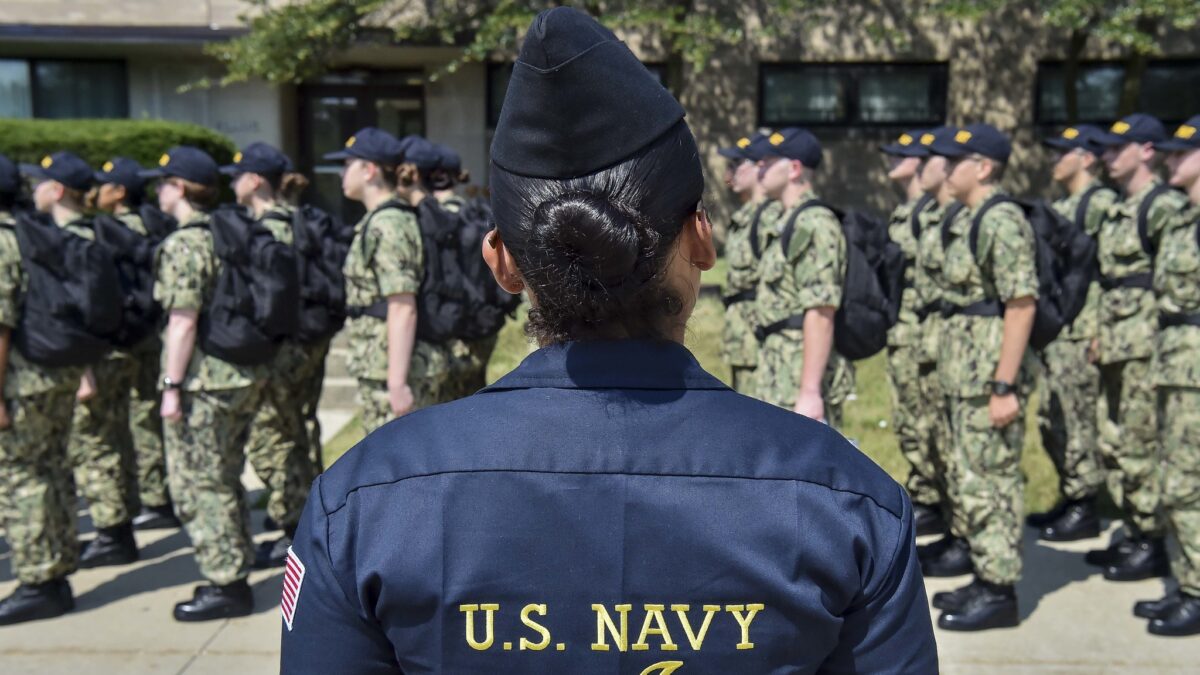
Matthew Bucella offered a spirited counterargument to my critique of the recent New York Times op-ed authored by retired Adm. William McRaven. Bucella’s counterargument, however, is severely undermined by several errors and the strawman upon which it’s based.
But first, let’s consider something former Joint Chiefs Chairman Gen. Martin Dempsey once explained regarding politics and the military (emphasis added):
Generals and admirals are generals and admirals for life. What they say carries the weight of their professional judgment and the credibility of their professional reputation.
More than an individual reputation, retired generals and admirals enjoy a collective reputation earned by having been part of a profession. It is therefore nearly impossible for them to speak exclusively for themselves when speaking publicly. If that were even possible, few would want to hear from them. Their opinion is valued chiefly because it is assumed they speak with authority for those who have served in uniform.
We’ll re-visit these remarks later. For now, it’s important to embrace the fact that military officers, active or retired, recognize what they say is indeed interpreted by the public as speaking for the military at-large. It’s simply disingenuous to suggest otherwise.
Having a Right Doesn’t Mean You Should Use It
That said, Bucella spends much of his article defending the right of retired military officers like McRaven to fully exercise their First Amendment right to free speech. This is, of course, a strawman. My argument never suggested retired officers have relinquished their constitutional rights. In fact, the issue isn’t about rights, but rather responsibilities.
The right to speak freely without legal fallout doesn’t necessarily relieve the individual of the social ramifications. Military or civilian, all Americans, but particularly those in positions of authority, have a responsibility to be measured when communicating, for words convey meaning and, therefore, have consequences. Isn’t it for this very reason that someone like McRaven would speak up to begin with, because he believes his words hold meaning and consequence?
Now that it’s been established what the debate is and isn’t, we move onto the next element of Bucella’s argument: “The public trusts the military because they know service members will put the mission ahead of their individual partisan beliefs. No one believes service members are non-partisan even if their job requires them to keep these beliefs to themselves.”
There are two problems with this statement. First, how does the public “know” the military will always put the mission ahead of their individual beliefs? Bucella doesn’t elaborate, suggesting Americans merely take it for granted that anyone wearing a uniform will automatically set aside his partisan beliefs and simply do his duty.
We know, however, how the military maintains professionalism: by enforcing unambiguous norms and regulations about personal conduct. Without some structure in place to govern servicemembers’ behavior, the public has little else but blind trust.
That leads to the second point: the partisanship of individual servicemembers matters little. What matters is that the public has confidence and assurances that the military, as an institution, will remain non-partisan.
Therefore, I specifically employed the phrase “façade of non-partisanship.” The military cannot be completely isolated from politics, so members should focus on maintaining the impression of the institution as non-partisan, no matter the commander-in-chief. That perception cannot be preserved unless the institution enforces those norms and regulations, active and retired servicemembers effectively police their own behavior, and, perhaps most important, civilians hold the military accountable.
Military Service Doesn’t Make Someone a Political Expert
After re-iterating McRaven’s right to free speech (again, a non-issue), Bucella further defends the Navy SEAL by saying: “McRaven’s reputation is based upon his accomplishments in the military. When he left the military he was allowed to take those accomplishments with him, just like any other service member does.”
In The Soldier and the State, political scientist Samuel Huntington characterized the military profession as “expert and limited,” having “specialized competence within their field and lack that competence outside their field. The relation of the profession to the state is based upon this natural division of labor.”
The point here is that military servicemembers don’t possess any more credibility in matters outside their area of expertise than the next person does. Since Bucella strongly emphasizes McRaven’s status as retired and a member of the public, this shouldn’t be too difficult to grasp.
As the highly trained specialists in violence they are, if McRaven or any other retired military officer wants to deploy his career accomplishments towards a matter within his area of expertise, that’s one thing. But when straying outside their lane, retired officers don’t deserve, nor should they expect, deference nor the benefit of the doubt.
“Politics deals with the goals of state policy,” Huntington further surmised, describing it as, “beyond the scope of military competence, and the participation of military officers in politics undermines their professionalism, curtailing their professional competence, dividing the profession against itself, and substituting extraneous values for professional values.”
Using the Uniform to Burnish His Political Opinions
Given his public image as a military man and his very blatant attempt to bolster his political views by exploiting the public’s admiration for the armed services, McRaven willingly risked violating the professional military ethic. Short of communicating in a more measured fashion, the better option, for himself and for the nation, was probably to say nothing at all.
Going back to Dempsey’s remarks quoted at the outset, there’s broad consensus that retired officers never truly speak for themselves, leaving Bucella virtually alone in believing otherwise. But he needn’t defer to the judgment of others. Instead, he ought to follow the logic: anyone who qualifies his opinion through an association with the military is leveraging the public’s respect for it. Dempsey, like McRaven, probably understood the implications of his actions when he criticized the president’s policies in a tweet that displayed his rank and a picture of himself in uniform.
‘Shirking’ Is a Well-Established Phenomenon
Bucella next misses the mark completely with this statement: “Chang suggests members of the military are trying to steer the president away from his preferred policies and this constitutes ‘shirking’ of their duties. He is incorrect on this point too.”
But this is precisely what “shirking” constitutes. Peter Feaver defines it as “military efforts to get policies to align with their preferences rather than the preferences of their civilian masters.” This is exactly the sort of behavior described in the reporting on the Syria withdrawal, and many scholars agree the military may indeed be engaging in the practice, which, again, doesn’t require the blatant disobedience Bucella describes.
These scholars, most of whom aren’t Trump-friendly, not only seem to have picked up on the shirking, but also agree it’s a problematic development, especially since the president’s been clear about his intentions regarding “endless wars.” Jim Golby explained it best regarding Syria: “If [the military] failed to develop options, and instead focused on convincing the President not to withdraw, they didn’t do their job.”
Simply put, one must deny quite a stretch of reality to suggest civil-military relations in the Trump era are as straightforward and unstrained as Bucella seems to believe.
In reference to the increasing acceptance of military disobedience among the public, Bucella’s correct—it doesn’t reflect very well on the public. That poses the logical follow-up question: why encourage behavior from retired officers most likely to exacerbate this troubling trend?
Separating the Man from the Uniform
Finally, it’s not clear what Bucella attempted to prove by referencing Ulysses Grant and Dwight Eisenhower; both men had to be persuaded to run for president against their personal desire to avoid politics. In office, both men did well in distancing their military past from their role as commander-in-chief. If anything, Grant and Eisenhower are exemplars of how retired military ought to behave, especially when acting politically.
The remainder of Bucella’s rebuttal, in which he reaffirms McRaven’s First Amendment rights, can be refuted simply by reaffirming in turn that retired officers don’t speak for themselves. Even if they could, as Dempsey said, nobody would care to hear from them.
With the nation’s faith in the republic seemingly on the ropes, the worst thing that could happen is for Americans to believe only the word of retired military officers as gospel, retired officers as exemplars of moral virtue, and that deliverance and salvation can come only from those charged with exercising violence on our behalf. But here we are. The American public listens twice as much when a military officer speaks, and this trust needs to be used responsibly.
If Bucella believes, as I do, that the best retired officers can do is to demonstrate faith in the republic they’ve committed to defending, then I’m certain he’ll agree that the greatest service they can provide is to remain silent on politics in public. Doing so will profess their trust in the American people to make the right choices.









